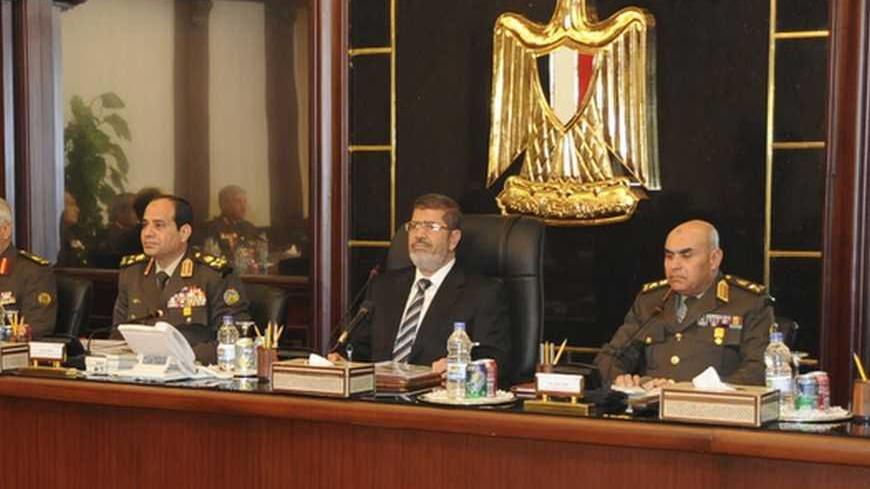The political news from Egypt has been dominated by reports of tensions between the powerful military and the country’s Islamist leaders, with news recently leaking that the Supreme Council of Military Forces (SCAF) has been meeting without President Mohammed Morsi to discuss the ongoing political crisis. Cairo is rife with rumors, speculation, and endless debate among the public as well as the political elite about how the military will react to the current turmoil, particularly if the situation escalates and results in more uncontrolled violence and chaos. It seems that many are considering “some sort of intervention” to be almost inevitable at some stage in the future.
Since the election of President Morsi and his surprise firing of Defense Minister Husain Tantawi, the military, with its new leader, Gen. Abdel Fattah al-Sissi, has adopted a well-crafted policy of watching closely from a distance and inserting itself only when deemed absolutely necessary. Al-Sissi, who was initially considered to be the Muslim Brotherhood's man in the army, has proven to be a man who speaks his mind. He is endorsed by his soldiers and is not shy about vetoing ideas he perceives as inappropriate or dangerous to Egypt’s national interest (at least from his perspective). The ministerial decree turning Egypt's border with Israel and the Gaza Strip into a five-kilometer-deep closed military zone and flooding the Gaza smuggling tunnels are just two examples.



